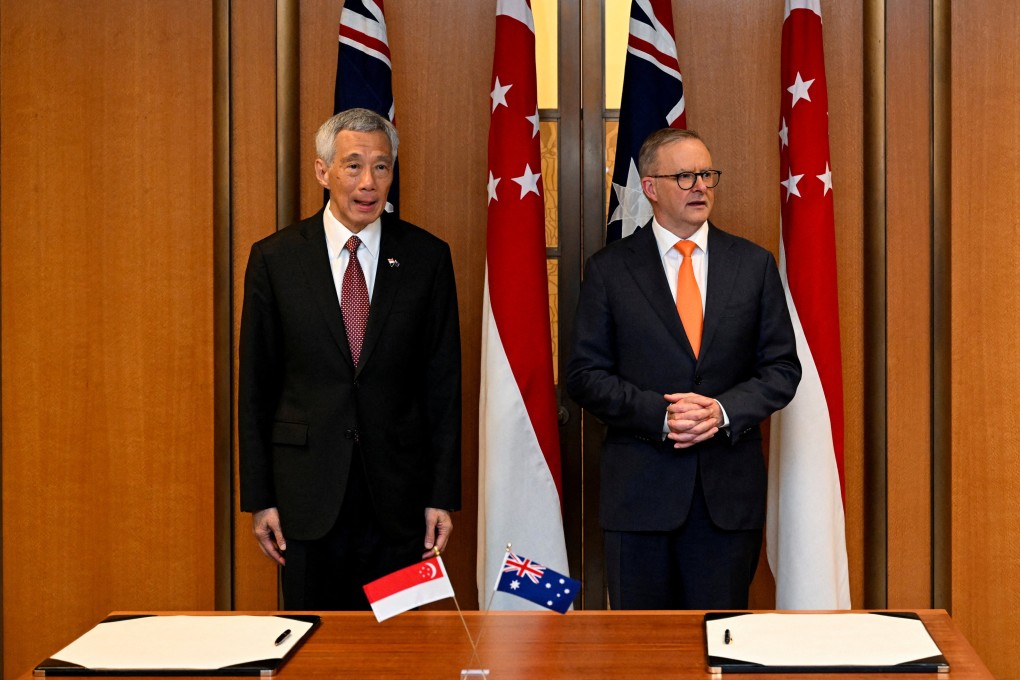US chip action against China may have ‘wide ramifications’ for the world: Singapore’s PM Lee
- ‘Decoupling is a worry’, PM Lee says, adding that Biden’s move may lead to ‘less interdependency, less trust and possibly ultimately a less stable world’
- Lee was visiting Australia, where he signed a ‘green economy’ deal to deepen cooperation on climate investment, financing and technology

The United States’ export restrictions on chip equipment to China may have been based on valid national security considerations but nonetheless will have “wide ramifications” for the rest of the world, Singapore’s Prime Minister Lee Hsien Loong has said.
“Decoupling is a worry. National security concerns are real, how wide or how narrowly they are defined, it’s a judgment of each government and administration,” Lee said in a joint press conference with Australia’s Prime Minister Anthony Albanese in Canberra.
“I think the Biden administration’s latest move is a very serious one. I’m sure they have considered it carefully. It can have very wide ramifications,” he said, responding to a question about economic decoupling between the superpowers following Washington’s move to expand curbs on access to chips technology.
“We will have to see how things work out, but we do worry that valid national security considerations may trigger further consequences and may result in less economic cooperation, less interdependency, less trust and possibly ultimately a less stable world,” Lee added.
On the same issue, Albanese reiterated his administration’s willingness to work with China, adding that when it came to issues like trade and cooperation, all countries needed “national resilience”, which included ensuring that Australia was “less vulnerable to shocks of whatever form”, like a future pandemic or trade issues.
Besides the friction between the superpowers, the two leaders also touched on Australia’s concerns about China joining the Comprehensive and Progressive Agreement for Trans-Pacific Partnership (CPTPP).
